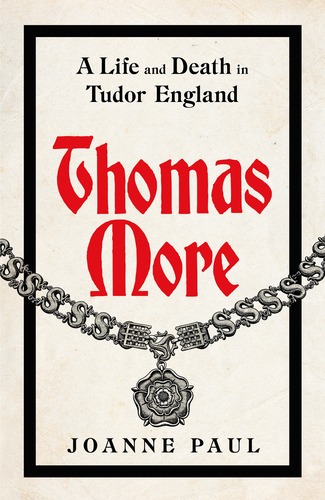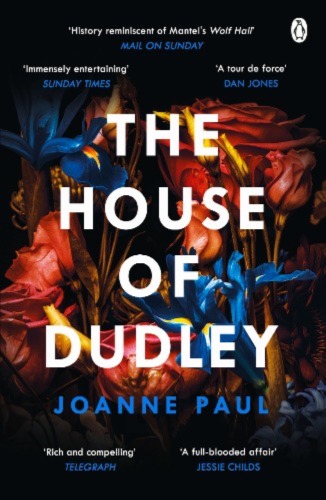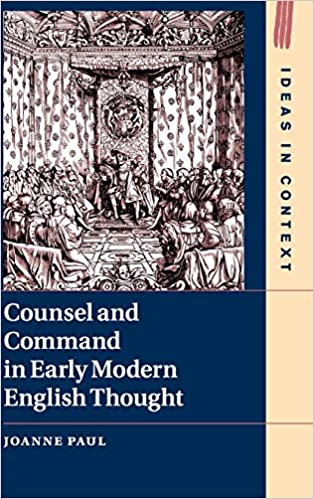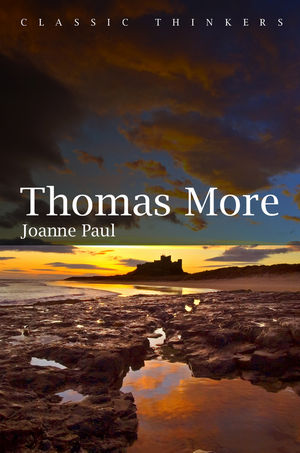

Publications
Thomas More: A Life and Death in Tudor England
Michael Joseph, Penguin 2025

Thomas More is one of the most famous – or infamous – figures in English history. Is he a saintly scholar and an inspiration for statesmen, socialists and intellectuals even today? Or is he the stubborn zealot famously portrayed in Hilary Mantel's Wolf Hall?
Here is the definitive biography of this hypnotic, flawed figure. Overturning many interpretations of the sixteenth century, Joanne Paul shows More to have been an intellectual and political giant of his age, central to the making of modern Europe. Drawing on new archival discoveries and over a decade's research into More's life and work, this is a richly-told story of family, faith and politics.
Praise for Thomas More
'Engrossing' THE TIMES - BOOK OF THE WEEK
'In this excellent study, Thomas More is reborn as a complex, absorbing man' DAILY TELEGRAPH
'[An] immersive, richly told account of life, death, faith and politics at the early Tudor court' SPECTATOR
'[An] entertaining and thought-provoking new biography... Paul is terrific at evoking the sights and spaces of 16th-century London' LITERARY REVIEW
'Joanne Paul has created a portrait of Thomas More that is epic, intimate and profoundly relatable to the modern reader. In Paul’s hands he is neither overly good nor bad; he just is. We are in a new age of tyrants – Thomas More shows the necessity of speaking truth to power at all costs' LEAH REDMOND CHAN
'A work of proper scholarly history as well as a wonderful narrative read...Joanne Paul goes back to the words More wrote himself, to try and get at More before fame and the accusations against him took hold. I so enjoyed the result' SUZANNAH LIPSCOMB
'Very impressive' ALISON WEIR
'[An] exceptionally well-researched biography... As compellingly as a novel, the story of More's rise and fall is vividly told' ELIZABETH NORTON
'THE definitive biography of one of history's most complex and often inscrutable characters' NATHEN AMIN
The House of Dudley
Michael Joseph, Penguin 2022

Each Tudor monarch made their name with a Dudley by their side - or by crushing one beneath their feet. The Dudleys thrived at the court of Henry VII, but were sacrificed to the popularity of Henry VIII. Rising to prominence in the reign of Edward VI, the Dudleys lost it all by advancing Jane Grey to the throne over Mary I. Under Elizabeth I, the family were once again at the centre of power, and would do anything to remain there...
With three generations of felled favourites, what was it that caused this family to keep rising so high and falling so low? Here, for the first time, is the story of England's Borgias, a noble house competing for proximity to the throne through cunning, adultery and sheer audacity, revealing some of the period's most talented, intelligent and cunning individuals.
Praise for The House of Dudley
A TIMES 'BOOK OF 2022' & BOOK OF THE WEEK
A TELEGRAPH 'SUMMER READ 2022'
ONE OF WATERSTONES 'BEST BOOKS OF 2022'
'Exciting and immersive. An immensely entertaining history, capturing in full Tudor brilliance the cut-throat glamour of the English throne and the most audacious family to play its game.'
'Rich and compelling. Conjures up the look and feel of Tudor life . . . You will find yourself drawn in, fascinated, and richly informed'
'Breathes new life into an old and familiar Tudor story . . . It's delightful, a joy to read'
'This is riveting stuff: death, desire, power and scandal. Paul has made the most of it, producing a well written and historically grounded page-turner, suitable for adaptation as a television miniseries.'
'An enthralling read told by Paul with great verve and an eye for the telling detail'
'When reading Joanne Paul's lively history of the house of Dudley, it is impossible not to be reminded of Hilary Mantel's Wolf Hall trilogy'
Counsel and Command in Early Modern English Thought
Ideas in Context, Cambridge University Press 2020

While it has often been recognised that counsel formed an essential part of the political discourse in early modern England, the precise role that it occupied in the development of political thinking has remained obscure. This comprehensive and rigorous study of early modern English political counsel establishes the importance of the relationship between political counsel and the discourse of sovereignty. Tracing the changes and evolution of writings on political counsel during the 'monarchy of counsel', from the end of the Wars of the Roses to the end of the English Civil War, Joanne Paul examines English thought in its domestic and transnational context, providing an original account of the relationship between counsel and emerging conceptions of sovereignty. Formed at the conjunction of the history of political thought and English political history, this book grounds textual analysis within the context of court politics, intellectual and patronage networks, and diplomacy.
Praise for Counsel and Command
'In her deft and lucid exposition, Paul encompasses much'
'The most detailed theoretical study of counsel to date'
Thomas More
Classic Thinkers, Polity 2017

Thomas More remains one of the most enigmatic thinkers in history, due in large part to the enduring mysteries surrounding his best-known work, Utopia. He has been variously thought of as a reformer and a conservative, a civic humanist and a devout Christian, a proto-communist and a monarchical absolutist. His work spans contemporary disciplines from history to politics to literature, and his ideas have variously been taken up by seventeenth-century reformers and nineteenth-century communists. Through a comprehensive treatment of More's writing, from his earliest poetry to his reflections on suffering in the Tower of London, Joanne Paul engages with both the rich variety and some of the fundamental consistencies that run throughout More's works. In particular, Paul highlights More's concern with the destruction of what is held 'in common', whether it be in the commonwealth or in the body of the church. In so doing, she re-establishes More's place in the history of political thought, tracing the reception of his ideas to the present day.
Paul's book serves as an essential foundation for any student encountering More's writing for the first time, as well as providing an innovative reconsideration of the place of his works in the history of ideas.
Praise for Thomas More
'Brilliant and lucid. This is an original and illuminating work that should be compulsory'
'Fascinating. Paul shows an impressive mastery'
You can find a full list of publications on Google Scholar. For Joanne's personal booklist, visit Bookshop.org.